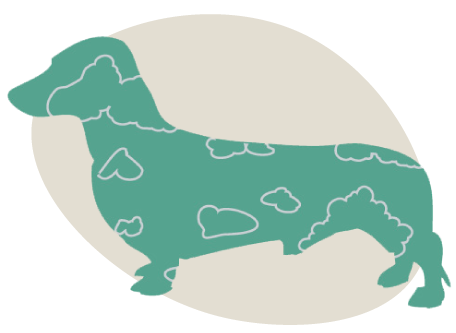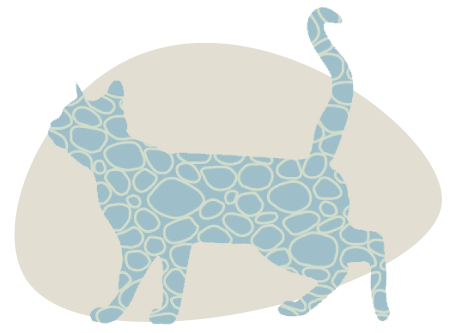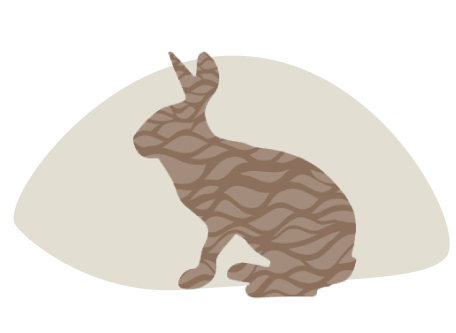Post Operative Care for Cats & Kittens
We know it can be a stressful time when your pet needs surgery, whether this is a planned neutering procedure or in the event of an emergency. Getting them home again is the best feeling in the world and with diligent post-operative care you’ll have them back on their feet in no time. If you are at all worried about your pet then please call us for advice – we’re here to support you! Below are some general pointers to keep you on the right track.
After an anaesthetic:
It is very common for pets to be drowsy for up to 24 hours after an anaesthetic. The vast majority will be back to their normal selves the following day, but if you are worried about your pet please do not hesitate to call us for advice. We recommend keeping cats indoors for 24 hours or so after anaesthesia to make sure that they are fully recovered before taking on the world again. You may be advised to keep them in longer than this, depending on the nature of their procedure.
You may notice a slightly hoarse voice or mild cough after anaesthesia if your pet has had a breathing tube placed while they are asleep. This should settle within a day or two but please call us if you are concerned.
Clipped patches:
Depending on the nature of the procedure your pet is likely to have some clipped patches of hair. All patients undergoing general anaesthesia (and most that are sedated) have an intravenous catheter placed to allow administration of medications and/or fluids. In order to place the catheter a patch of hair will have been clipped on one of the limbs. If a blood test has been taken, there may be an additional clipped patch on the neck (in some cases the blood can be drawn from the intravenous catheter).
For surgical procedures there will be an additional area of hair that has been clipped to allow cleansing of the skin prior to surgery.
Preventing wound interference:
In order to promote speedy and uneventful wound healing it is very important that your pet is not allowed to lick or scratch at the surgical site, which can cause infection and premature removal of sutures. If you have been provided with an Elizabethan collar (cone of shame!) or medical pet T shirt it is very important that these are worn. Remember to ‘unpop’ the t shirt from around your pet’s bottom before taking them out to the toilet and to do up the poppers when you come back in. Elizabethan collars should be worn at all times. If your pet is struggling to eat or drink with it on, raising the bowls up can be very helpful.
Stitches:
Sutures can be dissolvable or removable, depending on the procedure that has been performed. Dissolvable sutures may be buried under the skin or used as cutaneous sutures that can be seen. Dissolvable sutures take several weeks to break down but do not need to be removed. Sutures that need to be removed are normally taken out 10-14 days after the operation. You will be advised when your pet is discharged if the sutures need to be removed or not, but if you unsure please call for advice.
Dressings:
You may notice a sticky plaster wound dressing covering the surgical wound. These are normally left in place until your pet’s post-operative check-up, when we will remove them. In most cases it does not matter if the plaster comes off before the appointment, but please call us if you require advice.
You may also notice a bandage around your pet’s limb if they have had an intravenous catheter placed for their procedure. This is just a pressure bandage to reduce the risk of bleeding/bruising at the catheter site and can be removed once you’re settled at home.
Foot bandages:
If your pet has had an operation on their paw or limb they may have a protective bandage placed. It is very important that bandages are kept clean and dry as this prevents the foot inside from getting sore. Please protect the bandage with a waterproof covering only when your pet is outside, to prevent the foot getting sweaty.
If the bandage is slipping off, gets wet or dirty or your pet seems distressed by it please arrange a prompt follow up appointment so that we can check the bandage and replace it if needed.
Feeding:
In most cases your pet will have been offered some food prior to coming home to you. We recommend a bland diet for 24 hours after most procedures, after which time your pet can enjoy their usual food. The exception to this is after dental extractions, in which case we recommend soft food for 7-10 days to allow the mouth to heal.
Medication:
Your pet may have been discharged with medication to take after their operation. It is very important to follow the instructions carefully. The vet or nurse discharging your pet will go through these instructions with you, but if you have any questions when you get home please do not hesitate to call.
Post-operative checks:
In most cases we like to give patients a check-up a few days after their procedure. It is very important that you attend these appointments so that we can monitor your pet’s progress. The timing of these checks depends on the nature of the operation and this should be discussed with you at the discharge appointment. Please give us a call if you are unsure when to book your pet’s check-up.
Rest:
The most important part of post-operative recovery is getting enough rest! Animals are amazing and it’s very common for them to be a little quiet for the first few days and to then be keen to get back to normal! Depending on the nature of the surgery, your pet may need to rest for 3 days (for routine cat castrations, for example) to 3 months (after orthopaedic surgery). Please follow rest instruction carefully to reduce the risk of post-op complications such as wound breakdown, swelling and hernia formation. In the worst cases over exercise could mean repeat surgery!
In an emergency:
If you are worried about your pet during normal opening hours, please call us on 01227 264915. If you are worried outside of normal hours, please contact Vets Now in Herne Bay on 01227 634459.



